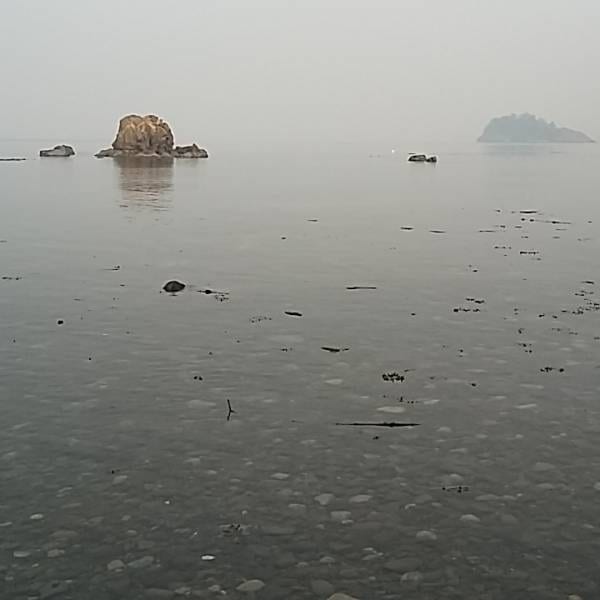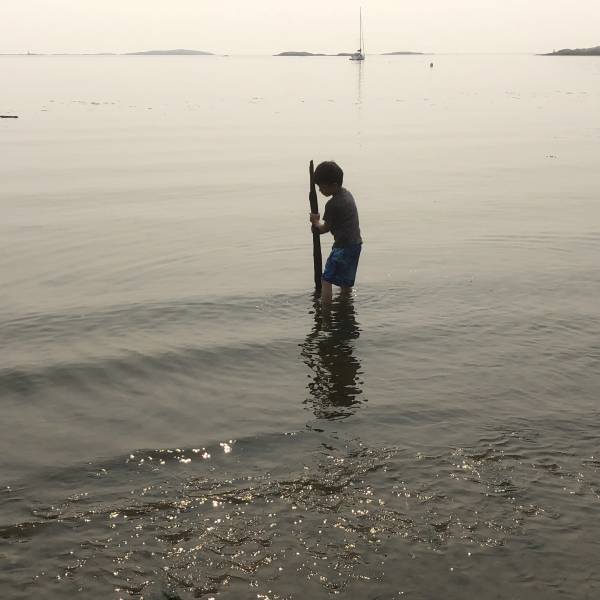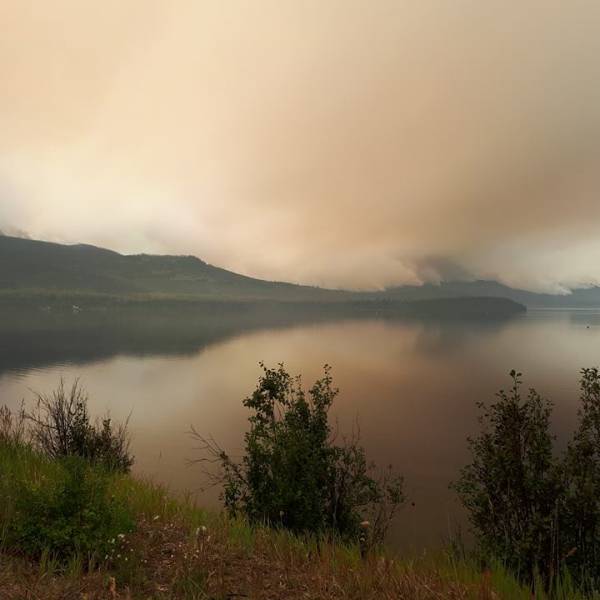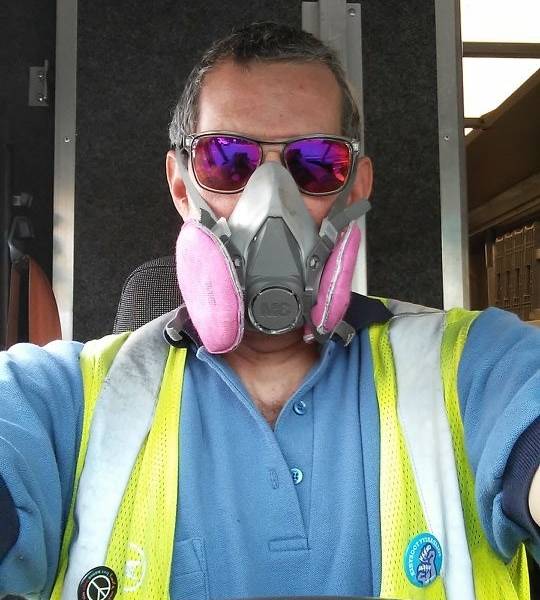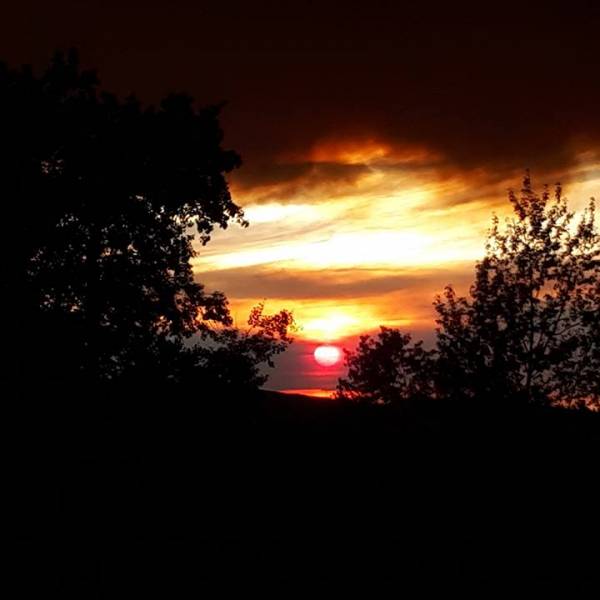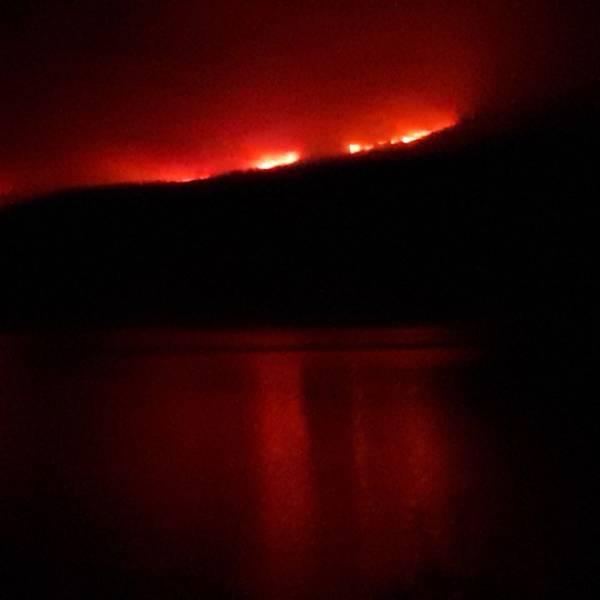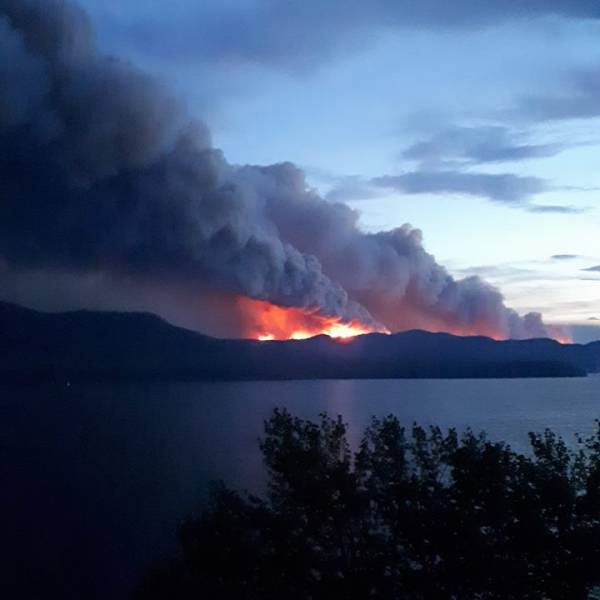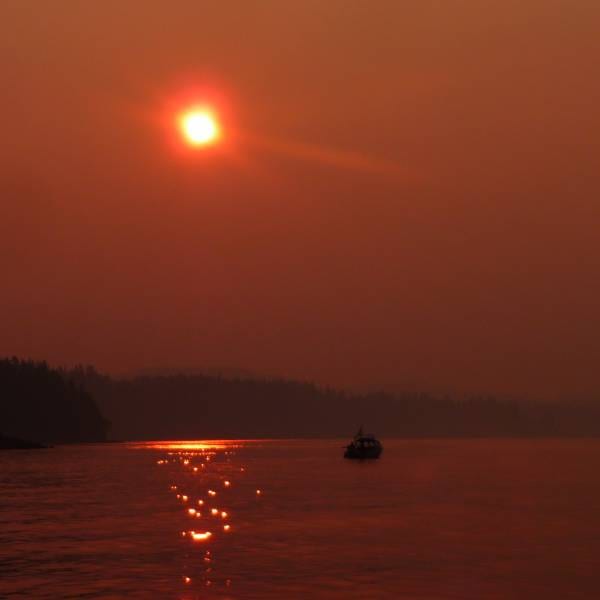350
CANADAON FIRE
THE FIFTH SEASON IS HERE.
The fifth season is here, and Canada won’t stop burning. From B.C. to the Maritimes and the places in between, 96% of Canada’s communities near forest and grasslands have been ravaged by wildfires for the past three years. Undoubtedly, the intensity and scale of these fires is driven by climate change.
We asked people from across Canada how the past three wildfire seasons have impacted their communities. Here’s what they had to say.
Stories from people all across the country
“In my hometown in Kelowna, BC a heavy blanket of smoke hung over us for nearly three weeks last August. My family, along with other farmers and migrant workers, worked long days under a blood-coloured sky during the peak of harvest season, where the air quality remained at very high risk for the region. My partner, who has asthma and had no choice but to spend 16 hour days outdoors during that time, spent the month of August wheezing and barely able to breathe. It was so difficult to watch him and our crop suffer and there was nothing I could do.”
— Jennifer, Kelowna BC
“Last summer, I had planned to take my kids to visit Grandma and Grandpa in the Kooteneys. But in August, when we were supposed to go, the smoke was so bad that the road was only open if you followed a pilot car. My mom was sick and unable to go outside. And she said the smoke there was so thick you couldn’t see the lake from the road. I had to tell the kids we weren’t going to see Grandma and Grandpa after all.”
— Tanya, Vancouver BC
“Working as a letter carrier for Canada Post, I had to wear a fine particulate mask many days last summer to avoid lung damage and possible long term effects. I felt the effects of the smoke despite my efforts, blowing my nose a lot, irritated eyes, dizziness etc. I’ve had two young adult friends die from athsma attacks during smoky periods over the last few years.”
— Zev, Victoria BC
“For the last two summers we have lived through extensive smoke making it hard to be outside and hard for plants to get enough son to grow in spite of the warm climate. We met with the Neighbourhood Emergency Preparedness Program (NEPP program) to discuss access as we only have one road in and out. They indicated they would come and bulldoze a path to get us and our animals out. We can’t rely on this kind of help as we are a small enclave of 36 homes. I suspect we would be down the line in terms of requests. We have had smoke and fires every year.”
— Kathy, Falkland BC
“The past two years have been terrible. We are generally quite active, but being outside the house was unbearable. One morning, when I opened the front door to help cool the house off with the morning air, our smoke alarm went off three times. There is no escaping the smoke. I’ve had a persistent cough all year. This year we purchased two hepa air cleaning devices. We will cool our house down in the morning, shut it down and turn on the air filtration devices, so that we can breathe easier.”
— Sharon, Cranbrook, BC
“I have asthma, so when the smoke settled into Victoria last summer, I invested in a HEPA filter, and stayed indoors as much as possible until it was gone. This spring I also invested in N95 masks because I want to be able to travel to AB to visit my daughter and grandchildren. Seeing the smoke and knowing how it is affecting SO many people makes me very sad, because we know what is causing this and yet we aren’t taking truly effective action to stop GHGs. Last summer my grandsons came to Victoria for a visit and arrived in the middle of the smoke. It significantly limited their ability to enjoy their visit. We needed to restrict the time they spent outdoors. The one day we took them to Willows Beach, it looked like a war zone — really creepy.”
— Katherine, Victoria BC
“Last year smoke from wild fires drifted over to Richmond making the sky yellow tinged and the air smell smoky. At the worst part of it, I could feel the smoke in my throat and became anxious about being able to breathe. I called the provincial health line and they gave me some information. I ended up purchasing an air purifier with a true-HEPA filter for my room which helped. This year I have been comparison shopping for respirators (air filtering masks) online because I walk or bike to work and am worried about air quality in the future. I’ve seen reviews for respirators online saying that they’re also from Vancouver and purchased them to help them breathe through the wildfire smoke. Luckily I can afford to buy these things if I need to, but we shouldn’t have to. Clean, safe air should be a human right, not something you need to purchase.”
— Allison, Richmond BC
“The past two summers were so hazy and smoky and although there were some wildfires in our area, we were being impacted by smoke from elsewhere. For 3 weeks, I hardly left my house due to the smoke. I can’t believe nobody in power is taking climate change seriously…”
— Verena, Golden BC
“I had a baby last year, and spent August holed up inside my house and other air conditioned places to keep him safe. I feel immense sadness thinking that he will grow up not being able to play outside in the summer without wearing a mask.”
— Julie, Calgary AB
“Evacuated for 3 weeks in 2017. Came home to a flooded basement from sprinklers being left on. Saved my house. Hydro was off for two weeks and everyone needed new fridges and freezers.”
— Laurie, 108 Mile Ranch BC
“Wildfires have consistently affected me and the area where I reside for about 5 straight years. Every year, I and others think this will pass quickly, but the fires remain for months, growing and spreading, affecting our air and ability to spend time outdoors. I am a very active person and have noticed a steady decline in the amount of bicycle riding, hiking and other outdoor sports I have been able to take part in over the years. I avoid strenuous physical activity when air quality is very poor, choosing to stay indoors to protect my lungs. As I get bronchial pain during those periods, I am not overreacting to a threat.”
— Selena, Keremeos BC
“I have asthma and any time the air quality index is moderate or above I am very limited with what I can do outside. Even short periods outside causes irritation and shortness of breath. Additionally, I have two young daughters who I cannot allow to be outside if the air quality is moderate or above. This limits the activities I can do with my kids.”
— Mark, Edmonton AB
“I am being personally impacted by wildfires. For the last two summers the smoke was really thick, especially last summer. My children and grand-children and I couldn’t go swimming on West Lake where I live near Prince George BC because of all the ash on the lake.”
— Antonia, Prince George BC
Decolonizing Wildfire Response
Indigenous communities across the country are often on the frontlines of raging wildfires. On July 8th 2019, the Pikangikum First Nation was evacuated for the second time this year in Northern Ontario. Respect for Indigenous leadership and knowledge should be central to responding to wildfires.
Some Indigenous communities, like the Tsilhqot’in Nation are taking wildfire response into their own hands. Read this message from Tsilhqot’in Tribal Chairman, Nitsil’in Joe Alphonse, to learn more:
“Our traditional, ecological and territorial knowledge of the Tsilhqot’in territory weaves an unbreakable thread through our generations for century upon century.
Protecting our lands, food sources and homes from wildfire is nothing new to us. We always knew the time would come for a massive wildfire event – it was never a matter of if, but always a matter of when. When the 2017 wildfires hit, we knew we had a long battle ahead of us. We knew that this battle was not going to be on the land with wildfire – it was going to be in the administration office with the financial reports, in the homes with the families and in the boardrooms with outside organizations.
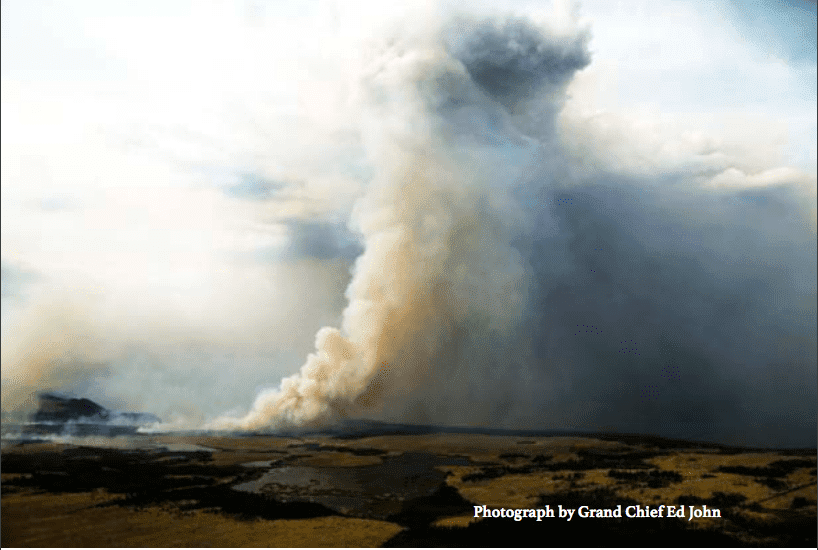
In 2010, my community of Tl’etinqox was evacuated to a centre in Williams Lake where our people slept on cots, were provided non-traditional foods and were at times viewed with major distrust by local staff. Traumas from residential school resurfaced as our elders felt the effects of being forced from their homes. Tsilhqot’in leadership did not want to put their people through this again, nor were we going to allow our houses to burn as wildfire resources went to other areas. We knew we had the strength and knowledge to stay and fight the wildfires – so we stayed.
Many of our members were trained and had years of experience working the front lines of wildfires for the provincial government. They protected our homes and our families from what would have been sure devastation.” — Read the full Tsilhqot’in report on the 2017 wildfires
The Science:
It is without a doubt that intensifying wildfires are driven by the climate crisis. Watch this piece by CBC’s the National to learn more about the connection to climate change:
Read more about the problem and the climate connections
- Fire Alarm: This is Not a Drill>>
- Alberta wildfires linked to climate change, scientist says >>
- ‘Can’t be any more clear’: Scientist says fires in Alberta linked to climate change>>
- Wildfire near Beaver Creek forces campground evacuation, temporary Alaska Highway closure >>
- Full evacuation from Pikangikum First Nation begins due to forest fire >>
- How Indigenous leadership is protecting communities from climate disasters >>
Support relief efforts
Learn how you can support wildfire relief efforts
